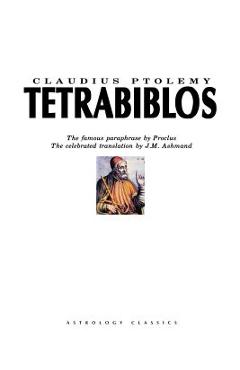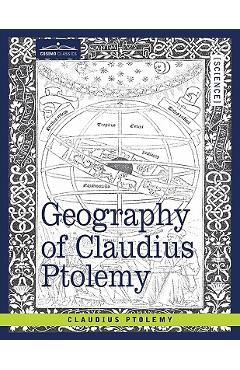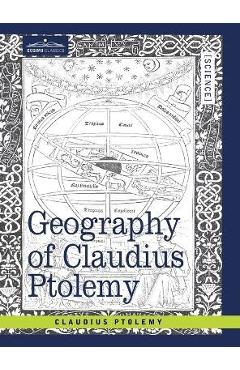Tetrabiblos - Claudius Ptolemy

Detalii Tetrabiblos - Claudius Ptolemy
libris.ro
111.32 Lei
Literary Criticism
Claudius Ptolemy
Tetrabiblos - Claudius Ptolemy - Disponibil la libris.ro
Pe YEO găsești Tetrabiblos - Claudius Ptolemy de la Claudius Ptolemy, în categoria Literary Criticism.
Indiferent de nevoile tale, Tetrabiblos - Claudius Ptolemy din categoria Literary Criticism îți poate aduce un echilibru perfect între calitate și preț, cu avantaje practice și moderne.
Preț: 111.32 Lei
Caracteristicile produsului Tetrabiblos - Claudius Ptolemy
- Brand: Claudius Ptolemy
- Categoria: Literary Criticism
- Magazin: libris.ro
- Ultima actualizare: 11-04-2024 01:14:23
Comandă Tetrabiblos - Claudius Ptolemy Online, Simplu și Rapid
Prin intermediul platformei YEO, poți comanda Tetrabiblos - Claudius Ptolemy de la libris.ro rapid și în siguranță. Bucură-te de o experiență de cumpărături online optimizată și descoperă cele mai bune oferte actualizate constant.
Descriere magazin:
Claudius Ptolemy (c.100 - c.178 AD), of Alexandria, was one of the greatest philosopher/scientists of the ancient world. Among his books are the Almagest, Geography, Optics, Planispherium and Tetrabiblos. The earliest surviving version of Tetrabiblos is the paraphrase attributed to Proclus the Philosopher (412-485). Tetrabiblos (literally, four books) was long thought to be a complete survey of Greek astrology. Recent research suggests this not to be the case, but Ptolemy\'s work remains the foundation of western astrology. In particular, his persuasive use of the Tropical Zodiac, rather than the Sidereal, changed western astrology forever. Book 1 of Tetrabiblos defines various technical terms and supplies other information needed by the astrologer. Chapters 9, 10 and 11 detail the influence of fixed stars in various constellations. Book 2 is the astrology of nations and their rulers. Books 3 & 4 are devoted to Natal Astrology. Book 3, chapter 2, explains Ptolemy\'s method of rectifying the Ascendant. Chapter 10 gives a method for determining life expectancy. Book 4 deals with wealth, rank, employment, marriage, children, death, etc. Published editions of Tetrabiblos traditionally include extracts from the Almagest (a compendium of Greek astronomy), as well as Ptolemy\'s Centiloquy, a list of aphorisms, the authorship of which is disputed. Many of the 100 deal with horary astrology. They have been studied by astrologers for centuries. Translations: Gardner (1911) lists four English translations of Tetrabiblos. The first was by John Walley, 1701. The second was Walley\'s translation, edited by Sibley and Brown, 1786, which is said to be worthless. The third, by James Wilson (author of the famous Dictionary of Astrology), was published in 1820. The fourth (this one, by far the best), was by J.M. Ashmand, 1822. A fifth translation was made in 1940 by F.E. Robbins. Of these several translators, only Ashmand could claim to be both a Greek and Latin scholar as well as an experienced astrologer. We are honored to present Ashmand\'s translation to a new generation of students. Ashmand\'s dedication is to Sir Walter Scott (1771-1832), author of Waverly, an historical novel about the Scots rebellion of 1745. To Ptolemy\'s text, Ashmand adds his own preface, as well as a note on Mr. Ranger\'s Zodiacal Planisphere. Every serious astrologer, from the 3rd century to the present, has studied the Tetrabiblos. With the current revival of traditional astrology, it remains e

Produse asemănătoare
Produse marca Claudius Ptolemy

Almagest: Introduction to the Mathematics of the Heavens - Claudius Ptolemy
![]() libris.ro
libris.ro
Actualizat in 05/06/2025
133.64 Lei

